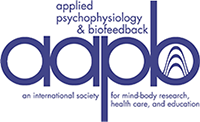Editorial Type:
Article Category: Research Article
| Online Publication Date: 26 Apr 2023
RESEARCH ARTICLE: Heart Rate Variability Biofeedback in the Treatment of Depression
RESEARCH ARTICLE: Heart Rate Variability Biofeedback in the Treatment of Depression
MD
Page Range: 1 – 6
Several interventions used in treatment of depressive symptoms can enhance cardiovascular risk due to negative impacts on autonomic balance. Decreased vagal tone and/or excessive sympathetic nervous system activity have been noted in patients with depression. Heart rate variability biofeedback (HRV BFB) training may be able to reduce the cardiovascular risk for depressed patients by increasing the parasympathetic input to the heart. The results of published studies support that HRV BFB may be useful as an adjunctive treatment for patients with depression.
Keywords: depression; biofeedback; treatment; HRV-BFB
Copyright: ©Association for Applied Psychophysiology & Biofeedback

Contributor Notes
Correspondence: Marcin Kopka, MD, Klaudyny Street 16 C/floor 1, Warsaw, Poland
